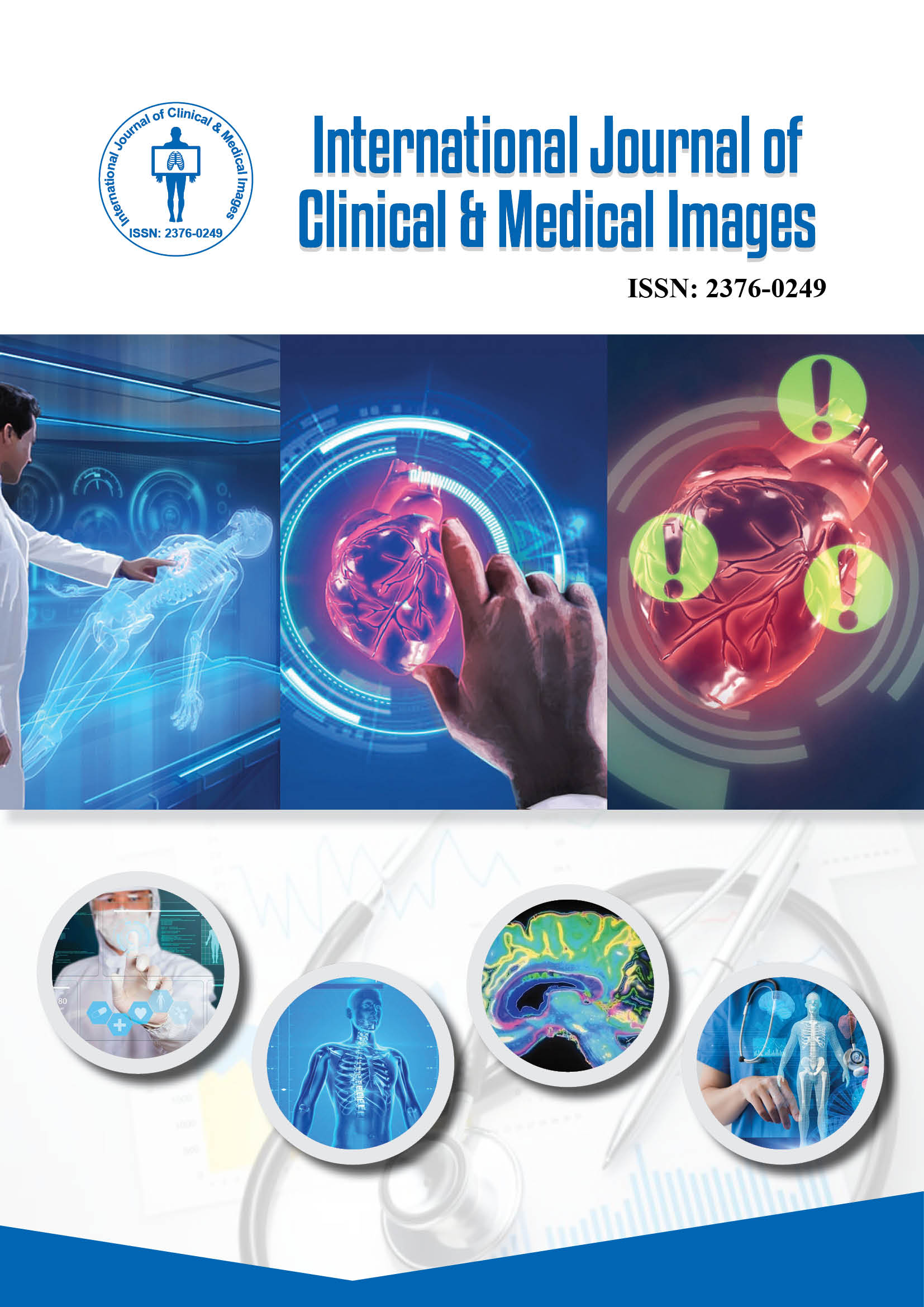2376-0249
Clinical-Medical Image - International Journal of Clinical & Medical Images (2024) Volume 11, Issue 6
Author(s): Stepien Levy*
Department of Diabetes and Endocrinology, University of Manchester, Manchester M13 9PL, UK
Received: 01 June, 2024, Manuscript No. ijcmi-24-142592; Editor assigned: 03 June, 2024, Pre QC No. P-142592; Reviewed: 15 June, 2024, QC No. Q-142592; Revised: 22 June, 2024, Manuscript No. R-142592; Published: 29 June, 2024, DOI:10.4172/2376-0249.1000965
Citation: Levy S. (2024) Imaging Techniques in the Evaluation of Rare Diseases. Int J Clin Med Imaging 11: 965.
Copyright: © 2024 Levy S. This is an open-access article distributed under the terms of the Creative Commons Attribution License, which permits unrestricted use, distribution, and reproduction in any medium, provided the original author and source are credited.
Imaging techniques play a crucial role in the evaluation and diagnosis of rare diseases, offering insights that are often pivotal in patient management. This manuscript explores various imaging modalities utilized in the assessment of rare diseases, highlighting their strengths, limitations, and evolving roles in clinical practice. From radiography to advanced molecular imaging, each technique contributes uniquely to the understanding and treatment of these challenging conditions. By reviewing current literature and case studies, this manuscript aims to underscore the significance of imaging in rare disease diagnosis and management. Imaging techniques are indispensable tools in the evaluation of rare diseases, providing clinicians with valuable insights into anatomical, functional, and molecular aspects of these complex conditions. Rare diseases, defined as conditions affecting a small percentage of the population, present unique challenges due to their diverse manifestations and often elusive diagnostic criteria. Traditional diagnostic approaches may fall short in identifying these diseases, making imaging modalities essential for accurate diagnosis, treatment planning, and monitoring of therapeutic responses [1].
Computed Tomography (CT) enhances the diagnostic capabilities by providing detailed cross-sectional images of anatomical structures. In rare diseases affecting organs such as the liver, pancreas, or kidneys, CT scans offer superior spatial resolution, facilitating the detection of small lesions or structural abnormalities that may guide biopsy or surgical planning. However, the use of CT is tempered by its ionizing radiation, necessitating judicious application, especially in pediatric or vulnerable populations. Magnetic Resonance Imaging (MRI) excels in soft tissue characterization and functional imaging, making it indispensable in the evaluation of neurological, musculoskeletal, and cardiac rare diseases. By leveraging magnetic fields and radiofrequency pulses, MRI provides exquisite anatomical detail without ionizing radiation, thereby minimizing potential harm to patients. Advanced MRI techniques, such as diffusion-weighted imaging and magnetic resonance spectroscopy, further enhance diagnostic accuracy by assessing tissue microstructure and metabolic changes associated with rare diseases [2].
Rare diseases; Radiography; Diagnosis
None.
[1] Senarathne UD, Indika NLR, Jezela-Stanek A, Ciara E and Frye RE, et al. (2023). Biochemical, genetic and clinical diagnostic approaches to autism-associated inherited metabolic disorders. Genes 14(4): 803.
[2] Kahler SG and Fahey MC. (2003). Metabolic disorders and mental retardation. Am J Med Genet C Semin Med Genet 117: 31-41.
 Awards Nomination
Awards Nomination

